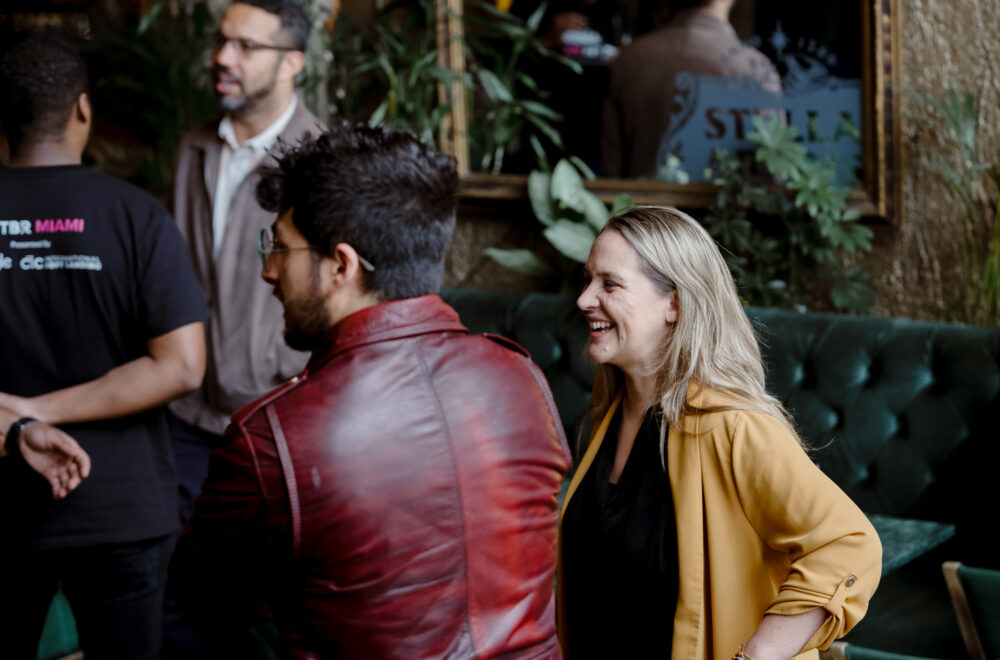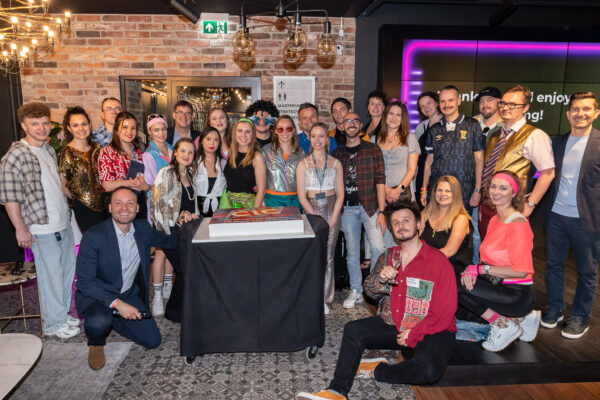Opinion piece by Alejandra Winter Etcheberry, Director, CIC International Softlanding
Internationalization is more than a business strategy; it’s a community-building exercise. A Harvard Business Review article emphasizes that the old definition—expanding business across borders—needs updating. Today, internationalization is about creating a thriving, global community where innovation can flourish. But what is the fuel for this kind of innovation? It’s the diverse perspectives and talents that people, including immigrants, bring to the table.
Immigrants are frequently the overlooked heroes in innovation landscapes. They bring unique viewpoints, enriched by diverse cultural experiences and different educational systems. These perspectives serve as a catalyst for creative thinking and problem-solving. However, despite their abundant talent, immigrants often find it challenging to secure opportunities in the United States due to various barriers. Programs like CIC’s International Soft Landing are designed to address this gap by providing crucial support and resources to help immigrant entrepreneurs establish themselves and thrive. Thus, facilitating such initiatives is crucial for fostering a vibrant, inclusive innovation ecosystem.
While traditional business metrics focus on financial outcomes, there’s a need to broaden our scope. In the development of innovative ecosystems, it’s not just about economic growth but about synchronizing this growth with social development. In other words, there’s a conscious effort to align economic and social objectives in a harmonious way. By doing so, we set the stage for innovation that is not just groundbreaking but also sustainable and inclusive.
Consider the success stories of immigrant entrepreneurs. These aren’t just personal victories or headline-grabbing numbers; they are indicators of a broader wealth of untapped potential. In fact, over $7 trillion in revenue generated by Fortune 500 companies are founded by immigrants or children of immigrants. Moreover, immigrants are 80% more likely to start businesses in the U.S. than native-born citizens. These achievements spotlight the kind of results that are possible when we leverage the full spectrum of talent in our communities. So, the question isn’t whether immigrants add value; it’s how we can better facilitate their inclusion to unlock more innovation.
The article in the Harvard Business Review reminds us that, at its core, internationalization is about community. In the past, we may have thought of this in geographic or national terms, but that’s too limited a view. The community of the future is one that is interconnected and diverse, transcending borders both literal and figurative.
As we build towards this future, it’s not enough to merely open the doors to immigrant entrepreneurs; we must also actively invest in their potential and include them in our vision for community-driven innovation. Immigrant talents and perspectives are integral pieces in the complex puzzle of global innovation. Their inclusion makes us not only economically stronger but also socially richer, enhancing the fabric of our collective community.
In conclusion, the modern concept of internationalization compels us to look beyond mere economic metrics. It asks us to consider the power of community, especially the enriching contributions made by immigrants. By embracing a more holistic view, we can pave the way for innovation that truly benefits everyone, everywhere.




